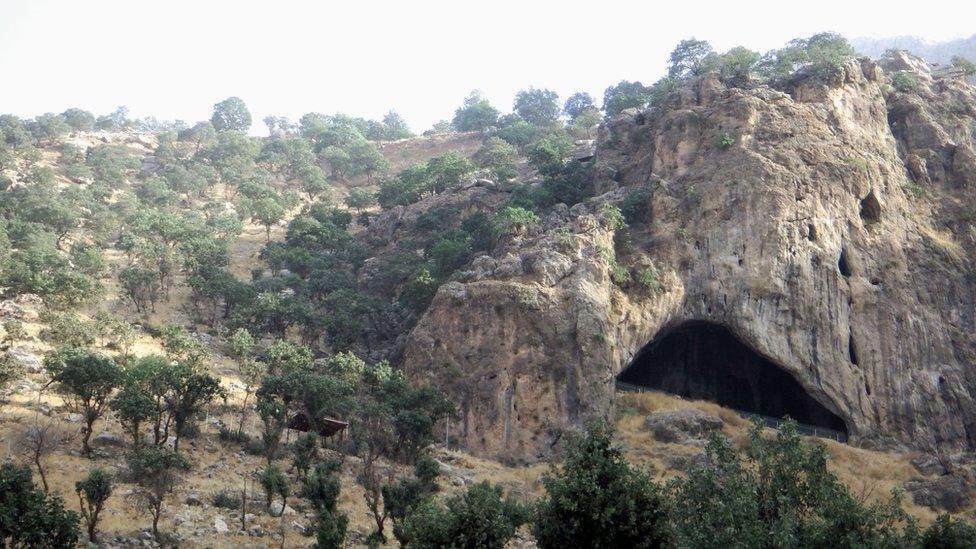Neanderthals flatbread discovered in caves in Iraq
- Published
- comments

The discovery of an ancient flatbread was made in this Shanidar cave network in the Zagros Mountains in Iraq
We've all done it, right? Forgotten about some leftovers that have been thrown in the back of the fridge... A half-eaten chocolate bar or maybe some take-away that's past its best?
Well those leftovers are NOTHING compared to this! Scientists think they have discovered Neanderthal flatbread - thought to be around 70,000 years old!
The charred remnants were recovered from the Shanidar Cave site - a Neanderthal dwelling around 500 miles north of Baghdad in Iraq.
Neanderthals lived across Europe and south west and central Asia between about 400,000 to 40,000 years ago.
Ancient leftovers
Researchers at John Moore's University in Liverpool found these burnt flatbreads in a cave complex 500 miles north of Baghdad.
It suggests that Neanderthal's were not just foraging on seeds and berries and uncooked meat, but were in fact experimental cooks.
The ancient flatbread was analysed under a microscope. It suggests the food was made from pulses like beans, lentils, and peas
The discovery makes it the world's oldest cooked meal ever found.
Compared with other similar discoveries found in caves in Greece, the scientists believe that in addition to raw meat, Neanderthal's were creating these ancient flatbread masterpieces to vary their diet, combining nuts and seeds with pulses - giving it a nutty texture.
Neanderthal communities were made up of small groups of close relatives, consisting of around 10 to 20 members.
A recent study of bone and tooth fragments reveals more about what Neanderthal life may have looked like.
The results are yet more evidence about how Neanderthal's lived and reinforces previous suggestions based on a Neanderthal poo study that they did in fact eat vegetables.
- Published26 June 2014
- Published25 October 2022
- Published21 August 2014
